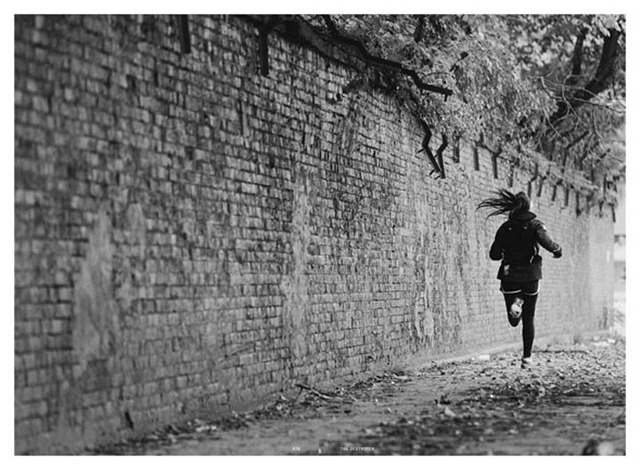February 29, 2012
Meltdown in the Epistemology Department
Medicine Head - "When Night Falls"
If you've never heard my karaoke version of "You're So Vain", then you've never been moved. In my baritone warble, the best verse ("You said that we made such a pretty pair/And that you would never leave/But you gave away the things you loved/And one of them was me") is rendered with unprecedented pathos. Unfortunately for you, I only do about one show every two months and I rarely tour and since karaoke is not the sort of thing one records, you'll probably never hear it. As such, I offer this thematically relevant, just slightly less beautiful, proto-Antony piece in its place. This song was recorded in 1970, but there's nothing to date it; it sounds as though it could have been recorded today. Promises are still broken and hearts with them and try as we might to run from it, when night falls, it still sounds just like this. [Buy]
While they're playing music, most bands cooperate internally. Members play their pre-agreed upon parts, their melodies and rhythms, and together create harmony. It's a utopian thing. Strange, then, that Tsehaytu Beraki manages to find a funky, whining beauty in his band's disagreement and strife. The bassist, for instance, rejects outright the song's 4/4 time signature. Certainly the skittering guitarist appears to be playing from a second score and the marshalling percussionists a third, highly divergent one. It's heartening to hear the guitarist and the singer agree, though in their near-unison there's a hint of competitiveness bordering on brinksmanship. And yet, despite the fractiousness, the music is most harmonious. It's enough to make one question whether music theory is anything more than an arbitrarily decided set of cultural mores. After all, if both harmony and disharmony produce harmony, then what do we really know about anything? [Buy]
February 28, 2012
The Dollar Menu Dickens
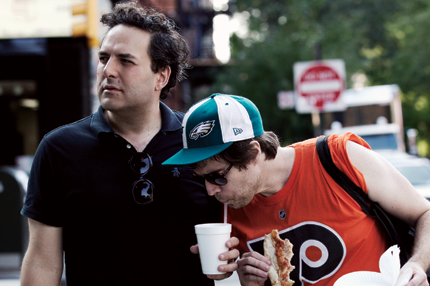
Tom Scharpling - "John McCain Plays the Theremin" (during the 2008 election race)
Tom & Paul F. Tompkins - "vs. Michael K" (Michael K plays in The Cynics, and is a notoriously boring, long-winded caller)
Tom Scharpling - "Chestnut Mare"
Tom Scharpling - "Impressions"
I've posted about The Best Show on WFMU before, but it's the WFMU fundraiser again, the final Best Show drive show is tonight at 9, and I want to make sure it doesn't get missed. The Best Show on WFMU is one of my very favourite things in the world, and I will tell you why:
It is one of the most novel and successful comedy experiments I've ever encountered. It's a three-hour call-in radio show every week, and it's currently in its 12th straight year. That's ~1800 hours of broadcasting, which in itself is not novel or an experiment, those things comes from the way those hours are used. Stories that get completed or continued spanning years between their updates. Callers and guests that feed back on their previous appearances, recalling moments or even phrases from months prior. A caller who started appearing on the show when he was 10, who's now grown up, become angsty and angry and been banned dramatically and permanently. Crazies and assholes and beautiful, marvelous accidents. And at the center of it all is Tom Scharpling, who has evolved as well. The growing popularity of the show modifying his approach, his moralism and impatience for negativity have streamlined the show's trajectory even further. Just listen, and keep listening, and listen more. For the lonely, the confused, the intelligent or the silly, Best Show is an iceberg, that one can only ever experience the tip, so hopefully one of these four tips will make you want to explore the rest. And if you're already a fan, don't forget to support. Non-"podtrash" radio, chump-steamrolling WFMU needs your help, and the way I help them is through Best Show.
[So tonight, from 9pm-midnight, stream the show at wfmu.org, and pledge +75$ to receive the prize pack, an always-incredible collection of original single-run comedy material. It will not disappoint, and it will never be available again after the funding drive. Last week, Tom broke all previous records by raising 100K in 3 hours, let's break 'em again.]
(image: Tom Scharpling and Best Show-regular Jon Wurster)
February 27, 2012
GROWLERS & GRRR
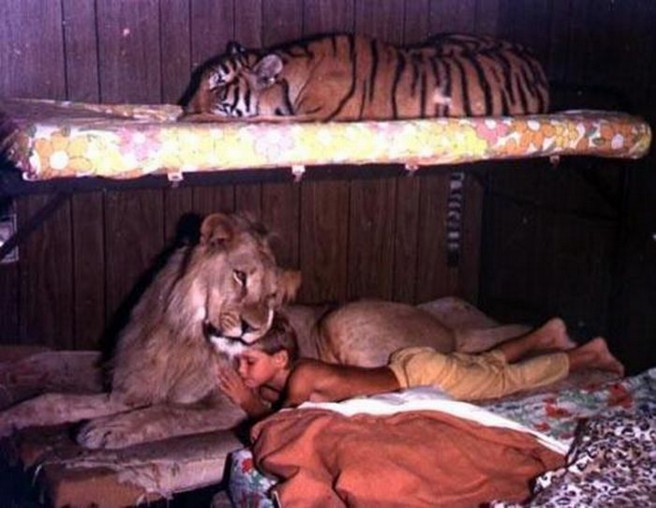
Milton Nascimento - "Cravo e Canela". With his spice shop, Luis thought that he would get all the girls. Pots of nutmeg, jars of cinnamon peel: all this latent eroticism, he thought, all this sublimated sex. Instead, the spice shop was mostly hard work. It was mostly figuring out the cash-register. This was not some garden of earthly delights; it was a business of shavings, powders, pods, seeds, euros per gram. At first Luis was disappointed, returning home at the end of the day, but then his wife turned him around. [buy]
Baby Eagle & the Proud Mothers - "Strange Bodies". Drunk at a dinner party; you don't realize it until he knocks over a glass. He is not jolly, not fun: his mouth is a stern line, as if he has just been disciplined. Suddenly the champagne flute is a weapon. You are not worried for him but you are worried about those he loves. Maybe he will grow a third arm, in the middle of the night. Maybe he will break his desk. Maybe he will chop down the whole forest. Everyone at the dinner party is hoping that things will change when spring arrives, like ice dislodging a frozen hull. Oh no! [buy]
---
Said the Gramophone was interviewed by the Guardian on Friday.
February 24, 2012
GET AWAY FROM THE OCEAN

Frank, 9, plays a candy game. They don't even call them video games anymore. He drives at blinding speeds, through tunnels and colours like drug trips. He dates three girls, two of whom aren't human, but anthropomorphic animals in onesies. He designs advertisements, for skateboards and fast food, and pays for his fake apartment with the cheques. He spraypaints at night (tag the tower!) and steals from the rich, sneaks through their windows and leaves the sun stains where the paintings used to be. He rips up sidewalks, he overturns cars, he is courageous, penetrant, spectacular. He rescues innocent hostages, from tied up attics and shipping containers, while getting texts from his best girl, a koala with tiny hands and a bowie knife. Frank has his first erection when playing the game, he gets a text: "I want to see you tonight." And he takes off, travelling the wifi cloud and boosted by the cell phone signal, into the polluted night sky, stained perpetually a deep beautiful dark blue.
PS I Love You - "Starfield (CJLO session)"
May jogs. Breath cloud, cold wet nose like a dog. Jog the day through the shoes, pat it all out with footfalls. This winter like a 6-month Fall. The organ of the brain, behind the eyes, shakes like a white-knobbed sketching toy, emptied by the rhythm, grey slate resting state. May jogs. May works her job. May only rest, 1 or 0, only what happens is the set of things that happen. Puff. Puff. Puff.
[Great album FREE (+tip if you want)]
(photo, of a bathroom stall in Bristol, by Lesley Stoch)
February 23, 2012
THESE SUSPENDED THINGS
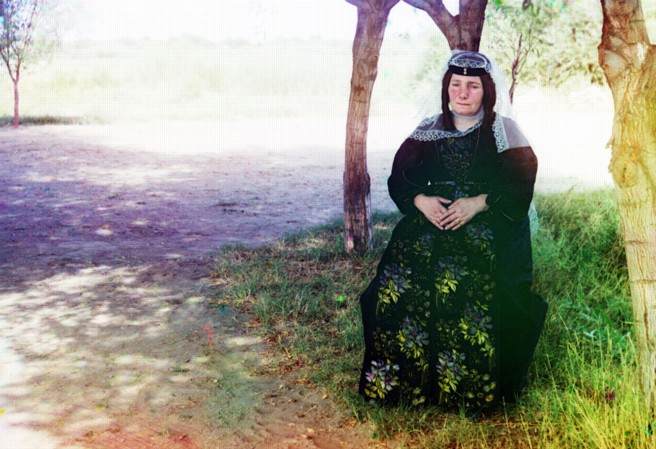
Eric Chenaux - "Dull Lights (White or Grey)". Eric Chenaux has made the best album of his career. After five LPs and a decade of working with acts like Sandro Perri, Ryan Driver, Drumheller and Michelle McAdorey, he has made Guitar & Voice, which is just that, just those perfect things, guitar and voice - coaxed & shattered & sublimated & splintered & mirrored & burned to ash.
Much of Guitar & Voice is unlike "Dull Lights". "Sliabh Aughty" is an eight-minute psychdelic jam, distortion singing in the wind: like Hendrix's spectral American flag but freer, jaggeder, caught in ozone and gulf stream, bedroom wah-wah. And four more songs - almost half the record - consists of bowed guitar instrumentals. These are stern, gorgeous things. The guitar(s) sound more like a viola de gamba, a Hardanger fiddle, than any beat-up old strummer. Rough and droning, baroque, these tracks feel wide and tall in ways that no pop music can; they transform Guitar & Voice from a collection of tunes into a kind of concerto, a whole roaming work.
Unfortunately I cannot just give you all of Guitar & Voice. You must order it from Constellation.
But they let me give you "Dull Lights", so let me talk about "Dull Lights", this music that evokes Perri, Chet Baker, recent PJ Harvey, Little Wings, Richard Youngs, Arthur Russell, Willie Nelson, Derek Bailey, Hoagy Carmichael and on & on. It is a song of heartache, bruise, trampled love. Ambivalence that isn't. I wouldn't mind / if everything I know / would spring and fall, Chenaux sings, low-high.
If you leave, things may happen differentlyThe song's title rises up in unexpected gaps, end-of-lines. All the lyrics seem so bruised, blood running thin circuits underneath. Whereas much of the record feels very much like an inside-music, songs from a room, "Dull Lights" is too big for that. Exterior, unwalled, with horizon and air. Civilizations will rise and fall while Chenaux sings his song. Things will be demolished. His fingers dance on strings - a guitar that summons summer nights, spanish valleys, dusty bus-stops - and yet there's always that far, listening drone. Someone just out of picture. A waiting face. An answer that won't be hurried.
like the sound of friends and beer
If it's blue it's not me and it's not you
dull the lights ...
Let the season decide
This is unquestionably one of the best albums of 2012. (Buy.)
February 21, 2012
Pray For The Flighty
Edmund was at his father's apartment building, a building filled with many retired people and elderly couples that jog. Edmund's father Peter was a member, in fact a co-founder, of the Helping Hands committee, a service put in place to assist the families of those who pass away in the building. If someone dies and they have a small family, or in some cases an unsupportive family, Peter and four other men in the building have volunteered to help sort personal effects and clean up the unit. Edmund calls them the "Corpse Troopers", which Peter is somehow able to laugh about. On his visit today, Edmund was conscripted to help with a clean-up, that of Judith Martin's apartment, a little yellow-haired lady of 91 who owned three closets full of sundresses.
As they boxed and bagged tablecloths and stacked plates, both decorative and non, Edmund told Peter about his new girlfriend May. "She's great, she works for the province." He had been reticent to confess about seeing her, because he'd anticipated that special look in his father's eyes, that look of "here we go again". "Oh yeah?" said Peter, not looking up from the china trays and photo albums, "You talk to Jen recently?" Jen, Edmund's third wife, had been Peter's favourite. Probably because Jen's natural state was flirtatious and her magnetism was felt most acutely by those just outside her closeness. "Jen? Why do you ask?" Edmund thought about why they couldn't just destroy all this left over stuff. It would be so soothing, to rip a sundress in two, send death a real message: don't mess with me. "Oh, I don't know..." One of Peter's time-perfected fade-outs. Edmund considered not following up. "No, why?"
"I just think you should have fought for her. I thought she was the one."
Edmund was not usually one to rant. He hated ranting because whenever he watched someone do it there were dips and valleys of meaning and focus, where they lost the plot and tried to bring it back. A rant's never a planned thing, and that means it's almost definitely going to go wrong, if even for a second: "Fight for her? Dad, what are you talking about? Fight for her?! I fought everyone else in the world so she'd love me and that wasn't enough, I'm not gonna fight her too!"
Peter took a breath, panting almost as much as Edmund. "Well--"
"And don't give me this bullshit about the 'the one'! Fuck 'the one'! 'The one' is dead! There is only the many. It's taken me this long, forty years of seeking steadiness and pattern to realize that steady is a lie, it's not that it doesn't exist, it exists, it's just a lie. It's like smoking. It's only the transitions that keep things going. Rooms are over, Dad, it's all about doors now!" And he slammed the door to the apartment, with the 419 nailed to it, Judith Martin's 419. Or rather, no longer hers.
February 20, 2012
SPECIFIC EXHALES
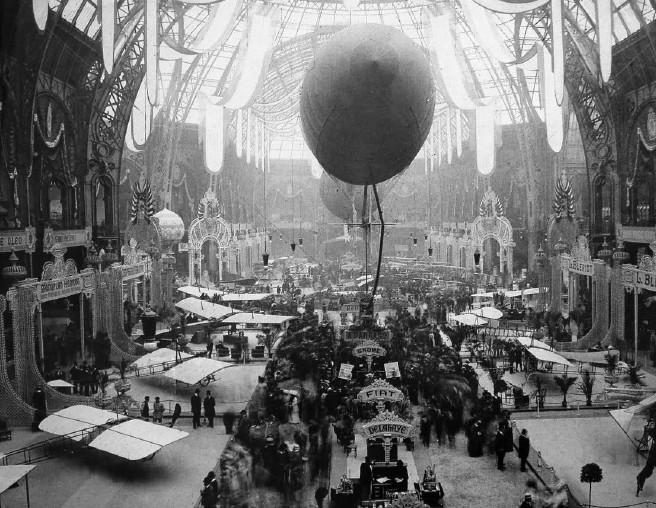
Avec pas d'casque - "Talent". As kids, our wishes are simple. For cake, for kittens, for magic wands. The wishes take on different colours as we grow older. For peace, for requited love, for two parents' reconciliation. As adults, some of us stop wishing. Not because we have stopped believing; there is still that slim chance that fate will hear our murmur, throw back an echo. No, we stop wishing because the wishes become so complicated. Our wishes become so complicated. Tu as ce talent, sings Avec pas d'casque's Stéphane Lafleur, You have this talent
for painting wolves without really knowing themI can't wait for Astronomie's release on March 20. Pre-order it now.
and you love people
in the same way.You, you have this talent.
You have this talent.
Lend me a little.
---
+ A sad farewell to the blog I (Heart) Music, which spent six and a half years being so generous, passionate and thoughtful about Canadian music. May the wind fill your sails, Matthew.
+ A reminder that I'll be speaking at Saturday's Polaris Record Salon in Montreal.
(Photo is of the first Paris air show, 1909.)
February 17, 2012
Memory Foam

Richard Hell & The Voidoids - "Betrayal Takes Two"
Tate ate pancakes and berries and Edmund thought about the moment he was conceived. He and Jen were housesitting, at their friends' Ben and Susan's place. Ben was an ex-Olympic swimmer, Susan was a physiotherapist. Their home was large, larger than Jen and Edmund's, and carpeted in pink. They self-described their home decor as "mostly accolades and exercise equipment". And it was true, the basement looked like a Hall of Fame that was built around a workout gym. Jen and Edmund, however, had no complaints. They'd watch the huge tv and walk the three dogs (Stanley, Pudge, and Michael Phelps) and make dinner on the giant marble island with the pots that hung from ceiling racks. And they'd make love, in the California King, all memory foam and super-high thread counts. It was like dressing their love in formal wear, like painting the face of their pairing. And another face did emerge from that time together, Tate came from the time they were pretending to be rich and successful and happy. And here he was, eating berries with his hands from a small bowl, unable to know if he should be thankful or not.
[Buy]
(image by Eduard Imhof)
February 16, 2012
BOUNTY
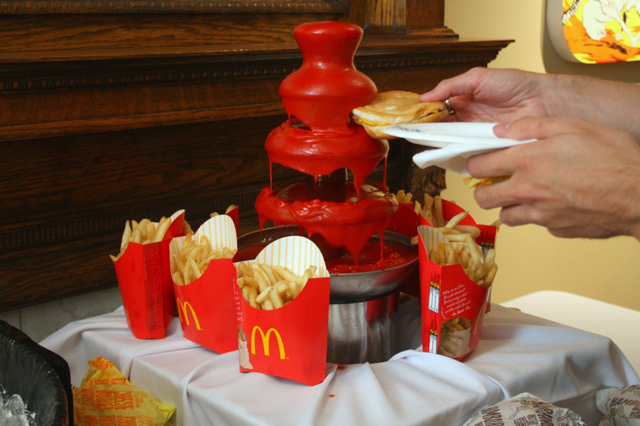
Usher - "Climax". [soundcloud]
Monica and Brandy - "It All Belongs to Me". [remember last time?]
Brianna Perry - "Marilyn Monroe". [facebook]
Three modern legends return, prove themselves relevant. One newcomer tosses her hair, rhymes, spits. Some weeks I just love music so much - hours that unspool little treasures, gemstone songs, like an automated mine. Not all of these jewels will last - some diamonds you lose, throw in the river. But I feel so rich, on weeks like these, when my chest is full.
---
Happy to announce that I'll be part of Montreal's first Polaris Prize Record Salon. At Casa on Feb 25, 4-6pm, I'll join Erik Leijon, Emilie Côté and Polaris's Steve Jordan to talk about some of our favourite Canadian albums since last June. It's free, with earphone doorprizes or something, but mostly I'd just love some thoughtful music fans to heckle, provoke and prod. (Full details.)
(Ketchup Fountain by Britt Spencer [via])
February 14, 2012
Heartless Bastards
Heartless Bastards - "Parted Ways"
Alison sat at her desk and cut an apple core with a pair of scissors. Out the window, she could see three roofers on the apartment building across the street. They looked like action figures from where she sat, they would've fit on the shelf next to her printer, next to her picture of Frank. It was 11:05, and it refused to be 11:06. Over the little wall of her cubicle, her neighbour Marsha had a dozen roses, baby's breath, poking their blossoms over top, peeking over top. Marsha was married to Reid, he worked down the hall and through the security door that her fob didn't let her access. Level 3. Where the big secrets lived. But it's not like Reid really knew any big secrets, Alison knew more secrets about him than he probably knew about government security. She knew he laughed when he orgasmed, like it tickled. She knew he liked having sex in hot tubs, so said Marsha. She knew he was concerned about his body hair, and rarely wore short sleeves, and never wore short pants in the summer, and sweated profusely for it. His secrets, just like those of Level 3, probably, weren't very interesting.
Alison pulled home at 3:41, and sat listening to the end of the news in the driveway. She didn't really hear the words, she just wanted to let the person finish their reading. It was impolite to cut them off. She looked at her tupperware lunch, stained with sauce, and she looked at the vent settings on the dash. Fan hits face, fan hits face and feet, fan hits feet and defrost, or just defrost. Air comes from outside, or it just keeps going around inside. Always better to let the fresh air in. When the newsperson finished and the music started, she turned off the car and went inside. Frank's empty hi-tops, his bag, his coat in a heap, like he left a trail. She heard the TV in the other room. Japanese cartoons, must be, all that shouting. She slowly ran her hand up the doorway to the empty kitchen and looked in at the way the light came in at this time of day. So bright, so warm, like winter never even stood a chance. On the table, a little card. A valentine. A drawing of Zorro. "Happy Valentine's" and Zorro carved the shape of a heart with his sword. She turned it over. "mom". And her stomach turned to glass.
Frank was staring with his mouth slightly open and an empty jar of olive brine next to him, looking up at the TV. Alison came up behind him and hugged him and closed her eyes. She hugged him like she had a secret. Like she couldn't tell him how much he meant to her, because he would just disappear. You can't tell your son that they're your secret sexless husband, that they're the period at the end of every sentence, that they're your best friend. But you can hug them, and that's what she did. She hadn't even taken off her coat.
[Arrow is out today on Partisan Records]
February 13, 2012
AND SHE WILL ALWAYS LOVE YOU
Whitney Houston - "I Will Always Love You". Houston's version of "I Will Always Love You" was one of my favourite songs when I was 12 years old, because I would sing along, at bat mitzvahs and middle-school dances, warbling with a grin on my face, making friends laugh. These days, I am not so fond of it - I fell too hard for Viking Moses' rendition, and Dolly's original. But still that opening minute, before the shiny band shows up, give a tremulous thrill, butterflies. I wonder now what Houston was singing for, or whom. "I Will Always Love You" was recorded for a film that is only 38% good. In The Bodyguard, Houston plays Rachael Marron, a fictional pop singer, and this song is one of Marron's hits. Thus: "I Will Always Love You" is sung in character. If Houston were a good actress, "I Will Always Love You" would be a perfect sublimation of Marron's feelings - a message from the pop-star to Kevin Costner or whoever, informed by the finaglings of an imaginary producer, an imaginary record label, an imaginary buying audience. It would not be Houston's song - it would be Marron's.
And so, thank goodness, Houston was not such a good actress. And "I Will Always Love You" is thus a ballad of this reality, true in this world, for Ottawa 12-year-olds and Chicago 30-year-olds, for you and you and you, everyone with a breaking heart or a whole one, the day before Saint Valentine's Day, when you just wait for a legendary singer to hit the right high notes.
Rest in peace.
[buy]
February 10, 2012
Iridescent Motivations
David Shire - "Theme from The Conversation"
"You hated me most in the mornings." Edmund and Alison, the second marriage. Edmund would often write little three-or-four-line scenes never-had between him and his partners. Today as he walked by old churches and women's shelters, barely able to look above people's knees, let alone in their eyes, he was ravenously replaying memories that never took place. "I'm trying to play team ball and you're just interested in impressing the scouts," he said, in his mind, to Carolyn, the first. And sometimes they would be things never-said to him, "You wear your coolness like a pair of rollerskates. That is to say, you look ridiculous in most everyday places," said Jen, the third, while smoking. Edmund ate lunch and saw the clouds outside, and that was all. All the shops and people, and trams and taxis and intolerable noise and traffic, was gone. He only saw the shreds of the gray clouds, out the window, and thought about the birds. "What are you thinking?" was something he was often asked, after times of elaborate quietude. "What am I thinking?" he would ask the air, hoping that hearing the question, posed from himself, would be easier to answer. And he wanted to answer, anything. Anything you want.
[do you trust something called BuySoundtrax.com?]
February 9, 2012
WEEPY SLEEPY
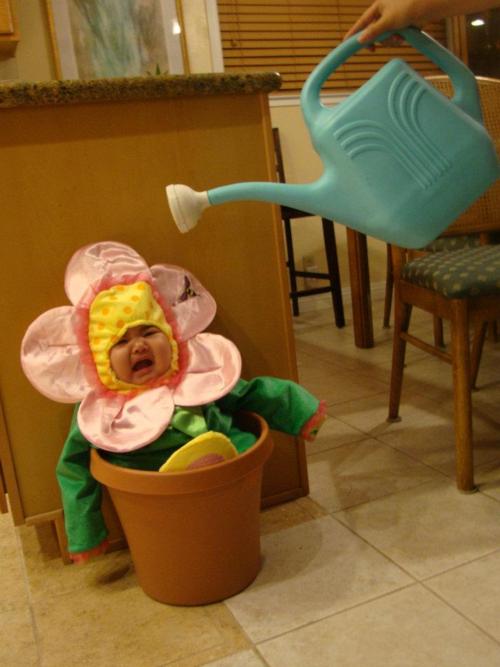
DakhaBrakha - "Baby". I am still working out which sort of "baby" DakhaBrakha (from Kiev, Ukraine) are referring to. Is this a song about infants growing up, getting down? Or about swooning sweethearts? The plot thickens near the third minute, when witches come out, disrupt the funk - overlapping voices like le Mystère des Voix Bulgares. Despite its beginning, this song does not feel childish. It is not goo goo or ga ga. If the infants do grow up, if the sweethearts do swoon, then there is still the risk of fights, splits, widowings. There are stormclouds brewing, ten million miles away. They can coax an uneasy peace, but it must be coaxed. [website / discovered via Far From Moscow]
---
This is a video about serendipity (it's more interesting than it may at first seem):
February 8, 2012
Can You Get Out Of My Way?
Willis Earl Beal - "White Noise"
Evelyn has trouble sleeping. She's been on the phone until one or two in the morning, every night, with her ex. He will cry and beg for her to come back to him, for things to be "like they were". And she doesn't know what to do except let this stuff wash over her. She's 17. She cries with him, and says "I know," the way her mother says "I know" when Evelyn cries in front of her. And eventually he gives up, having gained an inch or lost two, and his tear ducts scrape like sandpaper, and he feels utterly spent, his heart racing and his lungs empty, he says goodnight. And she has to get up for school in the morning, so she takes walks in her mind to help her fall asleep. In her mind she imagines getting up out of her bed, putting on her boots and closing softly the front door. She walks down past the tall hedges and around the corner through the kids park. Through the parking lot to the Becker's, and in her mind she buys a scratch ticket that wins 4$. She can vault over whole blocks or zoom out to see the whole city. She deposits herself in a seedy part of town. Dangerous and poor. She walks around feeling happy and scared, finally surrounded by people with real problems. She wonders what 'dirty' really means and imagines being with a drug addict. She imagines the pulling, the heaviness, the gravity of it all. In her mind she gets hit by a car, it goes right through her, and the license plate says "thug". Evelyn can't wait to finish high school and move out on her own. [Buy Acousmatic Sorcery]
Wavering Lines (youtube rip, if you, like me, wanna keep this song)
February 6, 2012
SIGNING VOICE

Miguel - "Adorn". He was a flinty lover, parts of him dusted in stone. Elbows, knees, soles of feet. They walked side by side, brushing shoulders, and his skimmed sides set off sparks. Little shiny sparks. It made her laugh. "There you go again." He never wanted to talk about the sparks, the flint: he was embarrassed, she thought at first, but then she realized he wasn't embarrassed at all. He just didn't want to talk about it. He looked at her with a look all full of tremors.
[Miguel's all exquisite rosy earthquake and maybe the best thing in R&B right now.]
Lisa Jaeggi - "I Had to Lie" A pretty little song, acoustic guitar and a trio of murmuring ghosts. Lisa Jaeggi has a thing that is worth so much: a singing voice. She uses it so well, here - singing the word "lie". Singing it as beautiful and seductive as that lie must have been, showing us the way we would have been fooled.
[this is an old song by Lisa Jaeggi / listen to more]
(photo is of Utah's Newspaper Rock)
February 3, 2012
Enough to Do All The Things You Think
Theo Wangemann - "Otto von Bismarck (October 7, 1889)"
The past didn't speak to Edmund, it barked at him. His great grandfather, Georg, was a lunatic, which isn't a nice word, but a nicer word would be an apology. Georg had three kids and then, according to his great grandmother's letters, "left forever in a flurry of violence." , in the late 1800's, he moved to New York City and lived on the streets, getting arrested for drinking and fighting and public blasphemy. Edmund's grandfather, Martin, had set himself on a journey to find his father when he was 19, and when he wrote home, the only mention of him was "a man who claimed to be Georg, joyless with a sunburnt face, but he looked so unfamiliar I thought him a liar." Martin himself went a little mad near the end of his life, writing a long, racist manifesto about how the government could fix all its problems. And Edmund's father Peter, now leaving a message on Edmund's voicemail, sounded doddering but still seemingly in control. "I just want to have email, that's all I really care about, a way to make email work, call me back." Edmund listened, hand cupped over one ear, in a bar and wondered if it were possible to inhale mental illness. Or to exhale it.
[more about a cylinder recording, the only known voice recording of a person born in the 18th Century, via the wonderful Gemma James]
--
"A good song to find out you've got AIDS to." Howie. Howie was a jerk with a crooked smile. But, if there were some situation (imagine a tattoo of God pointing a gun to your head) where Edmund were forced to list his "best" friends, however unlikely or incomprehensible, Howie would have to hold the top position. He was Edmund's single buddy, he'd been single throughout all of Edmund's marriages, and the two reconnect most often right after one relationship or another falls apart. Tonight they were listening to music and smoking weed in Howie's basement. Howie had spent these last 15 years collecting, cataloguing, mythologizing his life. He had stories of debauchery ("Ed, what do you think FMFF stands for? When you see it written on a napkin?") and humiliation ("he came at me like that metal spider in Wild Wild West") and horror ("first my mouth, then my nose, then my eye!") and triumph ("a Coke never tasted so good, let me tell you") And although Howie was two tiny notches away from intolerable, Edmund often sat listening in admiration, because unlike Howie, he'd spent the last 15 years searching and finding, and cherishing and spit-shining and taking for granted and squandering and losing and trying desperately to forget.
[Buy]
February 2, 2012
LOBBED CHANCES

BJ the Chicago Kid - "His Pain (ft Kendrick Lamar)". A treasure and devotional. Soundwave reinvents a sample from Black El's "The Ride", and Lamar finds the bassline, the feeling at its heart. He elevates his three minutes, earns them, telling his story in the blue-goldish glow of stained glass. Questions of God and fortune are not easy: anyone who skips and gallops with this stuff is not thinking hard. Note the care of Lamar's revelation, the melancholy shiver of his doubt. [Pineapple Now & Laters is out on Feb 14]
Damien Jurado - "Museum of Flight". When I did the math, I'm pretty sure Jurado was the artist by whom I own the most records - and so he is quantitatively my favourite songwriter. This raises the stakes. After the disappointment of Maraqopa's lead single, "Museum of Flight" is much more like it: an airy, darting beauty. In years of great, rough folk music, Jurado has often tried to mix things up with electric guitars. Here, he changes everything, just everything, in a much simpler way: falsetto, organ. It's as if he's moved from the woods to the plateau - through the telescope there's just cliffs, surf, open sky. [Maraqopa is out on Feb 21]
(photo of Oscar Pistorius and girl by Andy Hooper)
